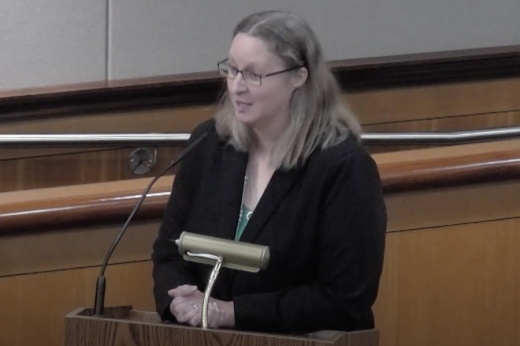North East ISD is decreasing its property tax rate for fiscal year 2022-23, but NEISD officials said they may explore the feasibility of a special 2023 election to raise the rate to generate more revenue.
The school board voted Sept. 12 to approve a new tax rate of $1.1822 per $100 valuation, a 4.5% decrease from $1.25 per $100 valuation in FY 2021-22.
District officials said, however, state law required board passage of an ordinance stating that NEISD was raising the tax rate, although it is being cut.
District officials added that the new rate is the maximum voter-approved tax rate—the highest rate a school district may set before it must hold a tax ratification election.
District officials said the voter-approved tax rate is determined by dividing the total amount of taxes by the tax base, or total value of taxable property, with adjustment as required by state law.
Susie Lackorn, executive director of NEISD’s finance and accounting department, said the lower tax rate could offer a sliver of relief for some taxpayers amid skyrocketing appraisals across the San Antonio area.
“It will provide a little bit of relief, but bear in mind, a drop in the tax rate is not nearly as beneficial to the taxpayer as not having major increases in [property] value,” Lackorn said.
NEISD trustees on Sept. 12 also viewed a district staff presentation on what is involved in organizing a voter-approved tax ratification election.
According to NEISD Chief Financial Officer Dan Villarreal, trustees dealing with the FY 2022-23 budget tasked district staff with considering other ways by which NEISD could increase revenues.
Lackorn provided an informational presentation about one such method: a special election where NEISD voters could be asked to approve the district levying a property tax rate above the current voter-approved tax rate.
“We’re at the threshold and can’t go over that without voters approving it,” Lackorn said.
Lackorn said if NEISD were interested in pursuing a tax ratification election, the district first must conduct an efficiency audit to publicly demonstrate the district’s efficient use of taxpayer funds.
Lackorn said either district staff could conduct such an audit or the board could seek an outside third party to do an audit.
Lackorn said, if NEISD leaders so desire, they could pursue calling a tax ratification in November 2023. If that were the case, Lackorn said NEISD would have to choose an efficiency auditor by July, adopt a new rate in late August or early September, and order a tax ratification by the state election calling deadline of Aug. 21.
Lackorn said the district would be required to finish the efficiency audit by early October, and then post audit results and conduct an open public meeting 30 days before the Nov. 7 election.
According to Lackorn, if voters ratify a higher tax rate, each additional penny—up to a $0.03 maximum—provides an estimated $7 million in revenue for daily maintenance and operations.
Superintendent Sean Maika said voters approved tax ratification proposals in Comal and Alamo Heights ISDs in 2021. He said using a tax ratification is just one tool to possibly supplement the district’s revenue stream.
“The cup is the cup. This is just one way to sort of make the cup a little bigger,” he said.
Trustee David Beyer said there is no official proposal to hold such a tax ratification election, but he agreed that, if approved, such a tool could provide extra funds to help NEISD achieve such things as additional employee compensation.
“This all came out of our discussion in budget sessions about needing more money for our staff and teachers, and this is a way that we could potentially get [money] without negatively impacting the community,” Beyer said.
Trustee Steve Hilliard said it is fine for the district to explore the possibility of a tax ratification election, but hopes NEISD staff will explore ways to improve cost efficiencies, too.
“Obviously this is a year out, but we should try for ways internally before we do cost containment and control,” he said.





